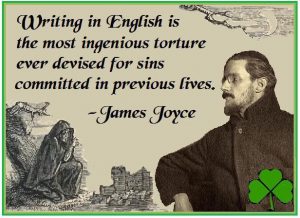 Your essay is due by Monday, May 4th at 9:00pm, please send it as a word doc to roxanne.eberle@gmail.com OR upload it to Google Drive and send me a link.
Your essay is due by Monday, May 4th at 9:00pm, please send it as a word doc to roxanne.eberle@gmail.com OR upload it to Google Drive and send me a link.
All of the following questions require that you first generate a thesis specific to the essay at hand. Once you have stated your position, you will need to prove your argument by carefully looking at the chosen material and mustering textual evidence to support that position.
Avoid biographical readings of the texts. Your assignment here is to support literary analysis through close reading of the literature itself.
Please do not use any outside criticism for this assignment. If you do look at outside material, you must cite it in a properly formatted Works Cited. See the MLA for guidelines. Links below
Other Guidelines:
You must discuss at least 2 pieces of literature but no more than 3
Paper Length etc.: 5 pages, Times New Roman 12-point font, double-spaced
Use MLA format when writing your essay. See the Purdue Owl website for assistance if you don’t have an MLA Handbook.
< https://owl.english.purdue.edu/owl/resource/747/01>
Writing Guidelines for 2320, Spring 2020
Writing a Literary Essay 2020, Powerpoint
Choose one of the following writing prompts to develop into an essay
In an essay that makes connections between at least two literary periods, discuss experiments in lyric poetry (i.e. from the Romantic era to contemporary poetry). What is it about lyric poetry that so captures the imagination of writers working in these eras and how does it evolve over the course of the nineteenth century and into the contemporary era? Please do construct a focused argument in response to this prompt. For example, you might choose to discuss the interrelationship of the Romantic dramatic lyric to the Victorian dramatic monologue, or how the lyric is used for political ends. For this paper, you’ll need to write on different poems than you did for your first essay.
In Past and Present, Thomas Carlyle argues for a vision of leadership that privileges the “Captain of Industry” as a “Thor-like” leader of men. In an essay that engages firstly with Carlyle’s argument, discuss at least one alternative or correction to his vision in another Victorian-era text.
In several of the works we have read this semester we have seen representations of England and its role in global networks, inclusive of trade and emigration. Some of those representations have been critical of the directions taken by England while others have been very positive. In every case, however, such representations indicate the author’s hopes and fears for the nation, as well as his or her love for the people, landscape, and an often idealized English past, present, and future. In your essay compare and contrast at least two works from the second half of the semester that take for their subject matter the “state of the Nation.” If you did not already write on Jane Austen’s Persuasion, you still may.
Victorian and Modernist poets were intent upon exploring the individual psyche as it was affected by his or her social context. They chose to make this exploration through verse. Discuss the ways in which two of the above poets use verse form to explore the “modern” psyche. This question requires you to carefully consider poetic form in the essay itself (i.e. how do Victorian poets adapt the conventions of the lyric for their specific purposes?).
According to Virginia Woolf in “Modern Fiction,” the author’s task in every era is to “catch life” in all of its complexity (BABL B 1401). In an essay that considers at least one work of fiction, but no more than two, explore the narrative tools that an author uses to “catch” life and convey it to the reader. This prompt asks you to go beyond consideration of plot to consider the way in which point of view, imagery, and rhetorical devices contribute to meaning in a work of fiction. Possible works for you to consider include: Persuasion, “The Manchester Marriage,” and “Araby.” You could also consider on Woolf’s ideas in “Modern Fiction,” if your focus is on the ways in which Modernist literature sought to disrupt nineteenth-century modes of narrative.